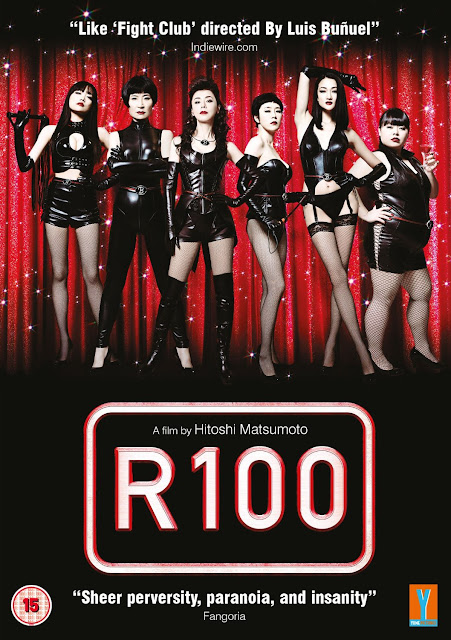Sometime all it takes is a title or premise to make a film. Samurai
Commando: Mission 1549 is a Sci-fi Military Action Time Travel Historical
Samurai Drama film. I’ll admit the title alone, in all its silliness, was
enough to get me interested, but thankfully I found that the movie was earnest
and enjoyable enough to live up to that title. It won’t be for everybody, with
its static filmmaking, thinly written characters, oddly straight take on its
plot and shoddy CGI effects, but beyond all that it’s a fun little adventure
movie.
The Japanese army are performing an experimental test of an
electromagnetic shield designed to protect military soldiers and equipment. The
test goes awry when everything within the shield radius, including a platoon of
armed soldiers led by Colonel Matoba, heavy artillery, tanks and helicopters,
are transported hundreds of years into the past to a battlefield in Sengoku
period Japan where they’re attacked by Samurai. Where they once stood in the
present is a grassy field that, based on soil samples, dates back to the year
1549. Three days later there’s another event returns the field to the past, but
brings a wounded Samurai, Shichibei, to the present.
Two year later, temporal black holes have begun appearing
across Japan, causing widespread havoc. The military believe that the missing
platoon have altered the course of history, which is destroying the present. To
stop this they begin Operation Romeo, a rescue mission to retrieve the missing
soldiers and hopefully restore the present. They conscript former soldier
Kashima into their team due to his past experience working with Matoba, while
displaced Samurai Shichibei comes to return home. But on arrival they find that
Colonel Matoba and his platoon have taken control, with Matoba taking the place
of warlord Oda Nobunaga, using his historical knowledge and future technology to
change the past and take over Japan and the world.
It’s a fun little adventure film, though it had an oddly
familiar feel to me. The types of characters (particularly the reluctant
military hero), the focus on the military personnel and equipment, some of the
cast and even the way it was shot reminded me of the Godzilla movies of the 90s
(minus the giant lizard monster). With a little research I discovered that it
was directed by Maasaki Tezuka, who actually helmed a bunch of Godzilla movies,
which explains a lot. The way scenes are shot and framed is very similar to
some Godzilla movies. The use of miniatures and often cheesy looking effects
also bring to mind the sort of ridiculous space-aged technologies they’d bring
out in Godzilla movies. Only here they’re mixed with feudal Japan-styled sets
and costumes. It’s a pretty fun mix.
It also feels as though it was adapted from a Michael
Crichton novel. To be more specific, at first glance it has a very similar
set-up to Timeline, the 1999 Michael Crichton-penned novel/2003 Richard
Donner-directed film where historians used an experimental machine and were
transported hundreds of years back in time to France during the Hundred Years
War where they had to stop history from being changed. While one might
naturally assume Samurai Commando is a rip-off, the truth is stranger:
apparently Samurai Commando predates Timeline by being based on a manga/film
from the seventies (starring Sonny Chiba no less!).
As a mixture of genres, it does pretty well. The time travel
stuff is mostly just set-up and to give a ticking clock element to the film
(they’ve only got three days to save the present and return home). It doesn’t
dwell on it too much and never gets bogged down in it. The military stuff is
fun (there are so many Godzilla-esque establishing shots of tanks, APCs and
military formations – only with Samurai!). One thing that might be a little odd
is the Samurai drama and historical aspects of the film and the characters in
general. They’re almost all one-dimensional, though the actors are certainly
game (nobody is slumming here) – they just don’t have that much to them. The
film clips along at a great pace, but the trade-off is that it doesn’t spend
much time developing characters. Not that it really feels like it needs it –
this is a fun little movie that does exactly what it sets out to do.
It’s full of anachronisms, which is part of the fun really. Matoba
is dressed completely in traditional Japanese garb, but still has his military
watch on. Seeing Samurai run around with machine guns or wearing improvised
ghillie suits is a lot of fun, as is the mixing of military action with
old-school Samurai drama. Even the look and overall feel have their own charm,
and the effects, as goofy and dated as they can look (the occasional CGI is
pretty bad), add to the overall silliness.
Samurai Commando is probably more grounded than a movie with
that title deserves to be. They really didn’t need to put in as much effort as
they did, but what they’ve done is pretty good.





